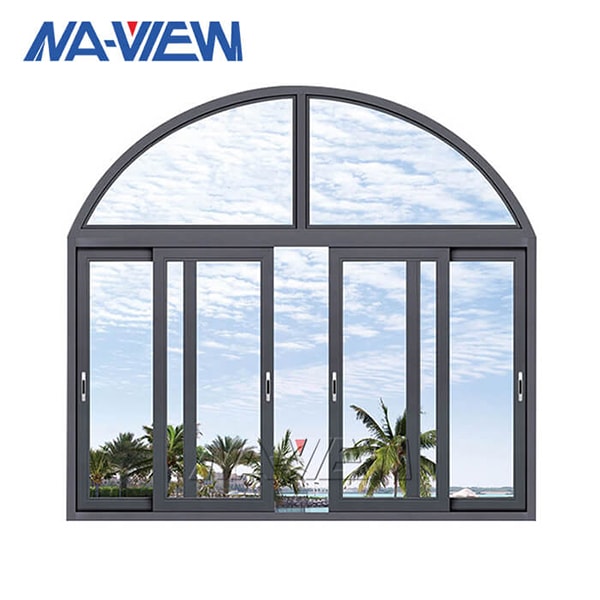Windows play a crucial role in the aesthetics, functionality, and energy efficiency of a building. Among the various window types available, aluminium sliding windows stand out for their sleek design, durability, and ease of use.
This passage compares aluminium sliding windows with other window types, such as casement windows, double-hung windows, and fixed windows, highlighting their differences in terms of design, functionality, energy efficiency, and maintenance requirements.
Design and Operation
Aluminium sliding windows are characterized by their horizontal opening mechanism, where one or more panels slide horizontally along tracks. This design allows for easy operation and provides a contemporary, streamlined look. Moreover, one of the advantages of aluminium sliding windows is the availability of size standard, which can simplify the selection and installation process.
In contrast, casement windows feature hinges on one side and open outward, offering maximum ventilation but requiring more clearance space outside. Double-hung windows consist of two vertically sliding sashes, allowing for flexible ventilation options but requiring regular maintenance of the balances and weatherstripping. Fixed windows, on the other hand, do not open and are used primarily for views and natural light.
Energy Efficiency
When it comes to energy efficiency, the choice of window type can significantly impact a building's thermal performance. Aluminium sliding windows, while offering excellent durability and weather resistance, are not as energy-efficient as other window types. This is because aluminium is a highly conductive material, which can result in heat loss or gain through the frame.
In comparison, casement windows, when properly sealed, can offer better energy efficiency due to their tight seal when closed. Double-hung windows can also provide good insulation when closed properly, although they may be prone to air leakage over time. Fixed windows, while not offering ventilation, can be highly energy-efficient if they are well-insulated and properly installed.
Maintenance Requirements
Another factor to consider is the maintenance requirements of different window types. Aluminium sliding windows are relatively low maintenance, requiring occasional cleaning and lubrication of tracks and hardware. Casement windows may require more maintenance due to their hinges and cranks, which can wear out over time and require adjustment or replacement.
Double-hung windows can also require maintenance of the balances and weatherstripping to ensure proper operation and energy efficiency. Fixed windows, being non-operable, require minimal maintenance but may need occasional cleaning to maintain their appearance.
Durability and Weather Resistance
Aluminium sliding windows are known for their durability and weather resistance, making them suitable for various climates and conditions. The aluminium frames are corrosion-resistant and can withstand exposure to harsh weather elements.
Casement windows, with their crank mechanisms, may be more susceptible to wear and tear over time, especially if exposed to high winds or frequent use. Double-hung windows, while durable, may require maintenance of the balances and weatherstripping to ensure they remain weather-tight. Fixed windows, being non-operable, are inherently more durable and weather-resistant but may still require occasional inspection and maintenance.
Security
Security is another important consideration when comparing window types. Aluminium sliding windows, when equipped with quality locks and hardware, can provide excellent security.
Casement windows, with their hook-shaped locks, can also offer good security but may be vulnerable to forced entry if not properly secured. Double-hung windows can be secure if fitted with quality locks and properly maintained. Fixed windows, while not providing ventilation, can be secure if installed with safety glass and quality framing.
Conclusion
In conclusion, aluminium sliding windows offer a sleek and modern design, ease of operation, and durability, making them a popular choice for many applications. However, they may not be as energy-efficient as other window types, and their maintenance requirements should be considered. Casement windows, double-hung windows, and fixed windows each have their advantages and disadvantages, depending on the specific needs and preferences of the building owner.
Ultimately, the choice of window type should be based on a careful consideration of these factors, as well as the overall design and performance requirements of the building.
